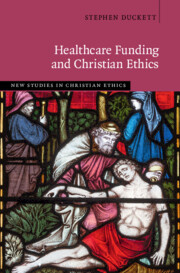Refine search
Actions for selected content:
76 results
21 - Generative AI Systems and Corporate Governance, Compliance and Liability
- from Part III - Generative AI
-
-
- Book:
- The Cambridge Handbook of Generative AI and the Law
- Published online:
- 08 August 2025
- Print publication:
- 07 August 2025, pp 367-391
-
- Chapter
- Export citation
7 - Captains of Industry
-
- Book:
- The CEO
- Published online:
- 19 June 2025
- Print publication:
- 19 June 2025, pp 216-238
-
- Chapter
- Export citation
Chapter 18 - Earth and the Environment: Islam and Stewardship
-
-
- Book:
- Contemporary Islamic Perspectives in Public Health
- Published online:
- 02 January 2025
- Print publication:
- 16 January 2025, pp 112-117
-
- Chapter
- Export citation
12 - Regulatory Accountability
- from Part III - Evaluation
-
- Book:
- An Introduction to Law and Regulation
- Published online:
- 22 November 2024
- Print publication:
- 28 November 2024, pp 357-387
-
- Chapter
- Export citation
11 - How Does Board-Shareholder Engagement Really Work?
-
-
- Book:
- Board-Shareholder Dialogue
- Published online:
- 31 August 2024
- Print publication:
- 07 November 2024, pp 325-367
-
- Chapter
- Export citation
4 - Systemic Stewardship with Tradeoffs
-
-
- Book:
- Board-Shareholder Dialogue
- Published online:
- 31 August 2024
- Print publication:
- 07 November 2024, pp 107-157
-
- Chapter
- Export citation
The need for climate data stewardship: 10 tensions and reflections regarding climate data governance
- Part of
-
- Journal:
- Data & Policy / Volume 6 / 2024
- Published online by Cambridge University Press:
- 07 November 2024, e52
-
- Article
-
- You have access
- Open access
- HTML
- Export citation
How to Be a ‘Good’ Collector: Some Ethical Reflections on the Private Collecting of Cultural Heritage
-
- Journal:
- International Journal of Cultural Property / Volume 30 / Issue 4 / November 2023
- Published online by Cambridge University Press:
- 13 May 2024, pp. 379-395
-
- Article
-
- You have access
- Open access
- HTML
- Export citation
Chapter 5 - Piers Plowman and the Inappropriable
-
- Book:
- The Theology of Debt in Late Medieval English Literature
- Published online:
- 04 January 2024
- Print publication:
- 18 January 2024, pp 136-171
-
- Chapter
- Export citation
Creating Synergies between International Law and Rights of Nature
-
- Journal:
- Transnational Environmental Law / Volume 12 / Issue 3 / November 2023
- Published online by Cambridge University Press:
- 07 December 2023, pp. 671-692
-
- Article
-
- You have access
- Open access
- HTML
- Export citation
10 - Central Concepts
- from Part III - Promoting Biocultural Diversity and Resilience: A Stewardship Approach to Conservation
-
- Book:
- Conservation in the Context of a Changing World
- Published online:
- 28 September 2023
- Print publication:
- 12 October 2023, pp 246-272
-
- Chapter
- Export citation
Multilateralism and the Global Co-Responsibility of Care in Times of a Pandemic: The Legal Duty to Cooperate
-
- Journal:
- Ethics & International Affairs / Volume 37 / Issue 2 / Summer 2023
- Published online by Cambridge University Press:
- 29 August 2023, pp. 206-231
-
- Article
-
- You have access
- Open access
- HTML
- Export citation
13 - Decolonising from Within
-
- Book:
- COVID and Climate Emergencies in the Majority World
- Published online:
- 22 June 2023
- Print publication:
- 06 July 2023, pp 116-122
-
- Chapter
- Export citation
10 - Distinguishing Offerings from Blessings in Early Byzantine Monasticism: The Significance of P.Ness. III 79 (ca. 600 AD)
- from III. - Monastic Encounters: Travel, Pilgrimage, and Donations
-
-
- Book:
- Monastic Economies in Late Antique Egypt and Palestine
- Published online:
- 14 April 2023
- Print publication:
- 20 April 2023, pp 271-297
-
- Chapter
- Export citation
Cultural Resource Damage Assessment
-
- Journal:
- Advances in Archaeological Practice / Volume 11 / Issue 2 / May 2023
- Published online by Cambridge University Press:
- 03 April 2023, pp. 111-125
-
- Article
-
- You have access
- Open access
- HTML
- Export citation
The impacts of environmental science on Bhutanese students’ environmental sustainability competences
-
- Journal:
- Australian Journal of Environmental Education / Volume 39 / Issue 4 / December 2023
- Published online by Cambridge University Press:
- 20 March 2023, pp. 437-451
-
- Article
-
- You have access
- Open access
- HTML
- Export citation
Chapter 24 - Stewardship and Resilience
- from Part II - Shakespeare’s Virtues
-
-
- Book:
- Shakespeare and Virtue
- Published online:
- 19 January 2023
- Print publication:
- 26 January 2023, pp 230-243
-
- Chapter
- Export citation

Healthcare Funding and Christian Ethics
-
- Published online:
- 19 January 2023
- Print publication:
- 26 January 2023
3 - Reconfiguring Environmental Governance in the Green Economy
- from Part I - Locating Nature in International Law
-
-
- Book:
- Locating Nature
- Published online:
- 22 September 2022
- Print publication:
- 29 September 2022, pp 70-108
-
- Chapter
- Export citation
5 - Anthropocentrism, Biocentrism, Stewardship and Co-Creation
- from Part I - Concepts
-
-
- Book:
- The Cambridge Companion to Christianity and the Environment
- Published online:
- 21 July 2022
- Print publication:
- 04 August 2022, pp 63-79
-
- Chapter
- Export citation
